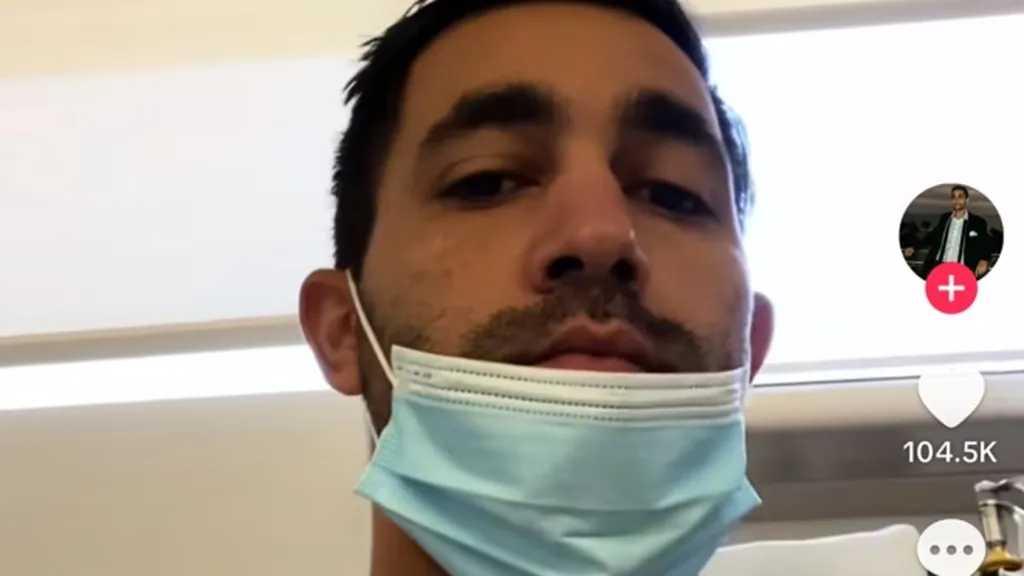A 34-year-old man diagnosed with incurable colon cancer has revealed the key symptoms he dismissed -- in a bid to help others avoid the same fate.
Jo Faratzis first began suffering problems in 2019, including 'a dull, mild ache' in the lower right of his abdomen from time to time that 'was easy to ignore and forget about'.
"I assumed it was unnecessary," admitted Mr. Faratzis after not following through with recommended medical tests despite noticing blood on toilet paper six months later.
Writing in US health publication Self, Mr. Faratzis says: "As a 28-year-old man I thought I was invincible, so I didn't do anything about it."
Two more months passed before he sought medical attention after beginning to bleed heavily -- leading to his shocking cancer diagnosis after a colonoscopy.
"I sometimes kick myself thinking back to that first doctor's appointment, and what I would have, could have, should have done," he reflects on TikTok.
The disease progressed rapidly post-diagnosis. Initially confined to the bowel, tumors soon appeared in his lungs and liver marking stage four cancer.
"Even if you have stage IV cancer, if you're able to find tumors early and have them removed, there's a chance you could continue to live for a really long time," shares Mr. Feratzis regarding hope amidst treatment challenges.
He advises others facing similar symptoms: "Listen to your body. If you think there's something wrong, it doesn't hurt to go get it checked out."
Bowel Cancer Concerns Rising Among Younger Patients
The disease has surged by 50 percent among younger patients over the past three decades according to recent data while remaining stable or declining in older groups.
Main Symptoms of Colon Cancer
- Changes in bowel habits such as diarrhea or constipation
- Blood in stool or rectal bleeding
- Unexplained weight loss and fatigue
- Bloating or feeling full quickly when eating little
NHS surgeon Dr Karan Rajan suggests monitoring new symptom changes as critical:
- If experiencing new symptoms like sudden diarrhea lasting weeks instead of chronic issues.
- If exhibiting three or more symptoms like abdominal pain combined with anemia increases risk significantly.
- A change from bright red rectal bleeding indicating hemorrhoids shifting darker warrants further investigation.
